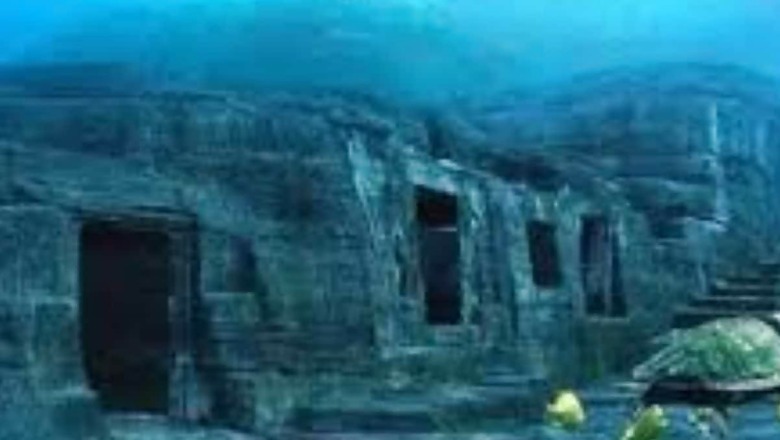
views
Atlantis, the lost island civilisation commonly envisioned as a sophisticated, utopian society has remained a mystery for decades. The fictional lost city, believed to be buried under water, finds mention in Greek philosopher Plato’s works Timaeus and Critias, which were composed in 360 BC.
Plato said that the people who founded Atlantis were half gods and half humans. They established an ideal society and grew to be a formidable naval force. Their dwelling consisted of a network of concentric islands joined by a channel that cut through to the centre and divided by large moats.
The verdant islands were home to a variety of rare and exotic animal species and were rich in gold, silver and various other valuable metals. On the centre of the island, there existed a grand capital city.
Over the years, several explorers and researchers have tried to decode the mystery surrounding the sudden disappearance of Atlantis. This has brought many theories into light. According to various accounts, it may have been beneath what is now Antarctica, in the Mediterranean, or off the coast of Spain. Recently a discovery indicates that the researchers may have found the root of the Atlantis tale off the coast of Lanzarote, Spain.
The whole island was sunk by the water in a single day, according to Plato’s works. The belief at the time was that the island’s inhabitants were immoral, which is why it plummeted into the water.
Since then, the mystery has remained unsolved, in part because the narrative might have been made up.
Nonetheless, researchers working on the Atlantis project in Spain as part of the IGME-CSIC believe they have unearthed the myth and now they have gathered more information about the lost city.
They found a string of submerged islands off the east coast of Lanzarote with the assistance of an underwater robot submarine.
The robot travelled 2,500 meters below the surface of the ocean to collect samples from the seafloor of an island that is thought to have sunk millions of years ago.
They now refer to the area as Lost Atlantes, citing the antiquated notion.
“This could be the origin of the Atlantis legend,” marine researcher Luis Somoza of the Geological Survey of Spain told Live Science.
“We have identified beaches, cliffs and sand dunes at the flat summit of the seamount.”
Somoza added that contrary to the narrative of Atlantis, they were once islands that have sunk and are continuously sinking.
According to the geologist, the lava hardened and sank the islands into the water when the other volcanoes ceased to erupt.
He notes that about 25,000 years ago, during the last ice age, sea levels were far lower than they are now, and dormant volcanoes would have reverted to islands.
“These islands could, then, be used for inhabiting wildlife,” he said.
The researchers’ next course of action involves closely examining the samples they took in order to pinpoint the exact moment the islands began to sink.



















Comments
0 comment